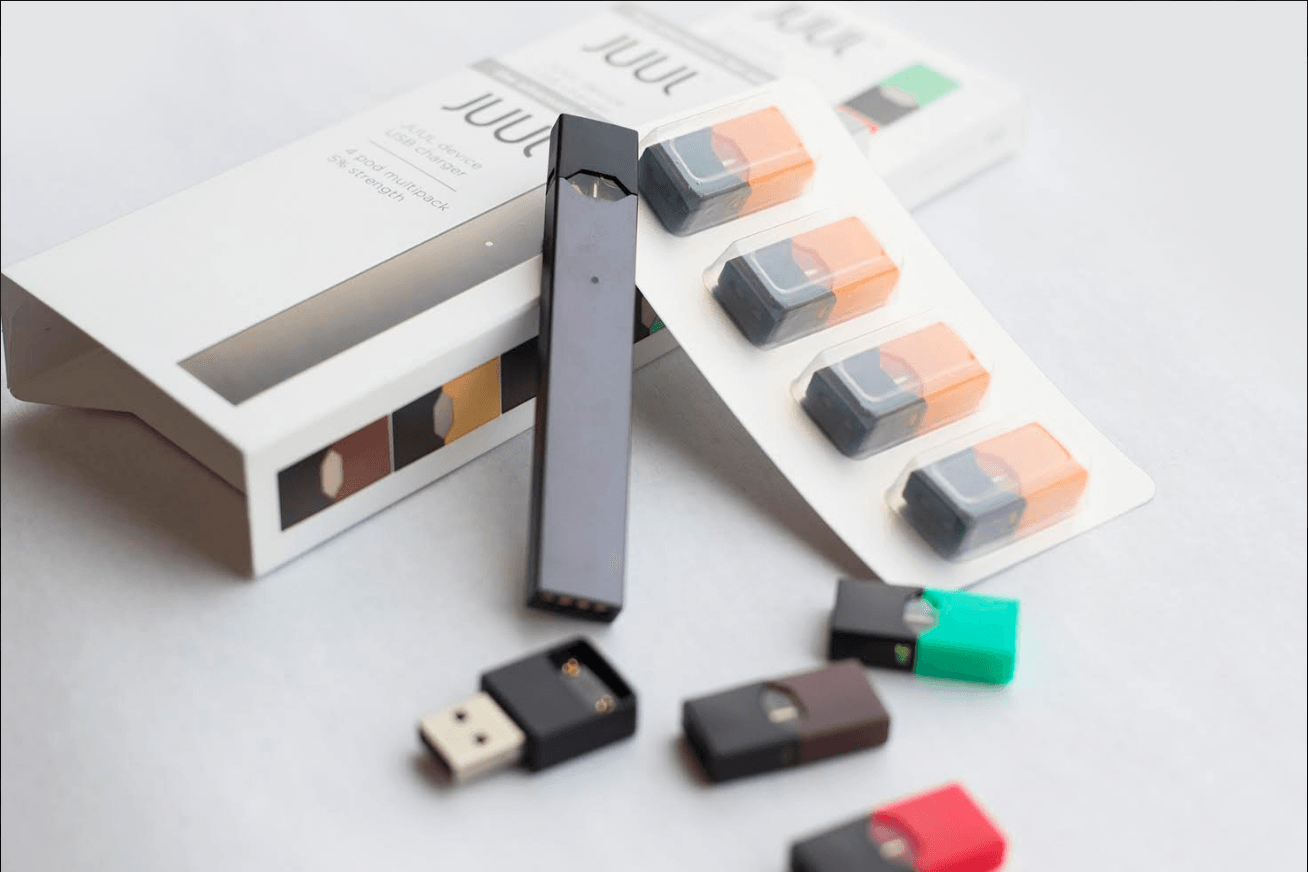Vape Nation: a closer look at the rise of JUULs at UMW
3 min read
Wired
By SARAH GARNETT
Staff Writer
In a recent study done by the Center for Disease Control and Prevention, the sale of JUULs was found to have increased 641 percent during 2016-2017. JUUL is a brand of e-cigarette that contains nicotine, and offers an alternative to regular cigarettes. In Dec. 2017, JUUL sales accounted for 1 in 3 e-cigarette sales in the United States. They have an added appeal of coming in a variety of different flavor pods, masking the taste of nicotine. On Feb. 21, 2019, Virginia Governor Ralph Northam signed a bill that will raise the age to purchase tobacco and vaping products, including JUULs and other e-cigarettes, from 18 to 21. The bill will go into effect on Jul. 1, 2019.
According to the JUUL Lab’s website, their mission is to “improve the lives of the world’s one billion adult smokers.” The website also outlines restrictions placed on purchasing JUUL pods that went into effect in Nov. 2018, aimed at preventing youths from using the product. These preventative measures included ensuring no one under the age of 18 is able to purchase the product, and that certain flavored pods were not allowed to be sold to anyone under the age of 21.
To prevent illegal sales, JUUL limits customers to two vaporizers at the time and only 10 vaporizers per year. The company also holds customers to a monthly limit of 15 pod packages. Furthermore, the company has a “secret-shopper” program aimed at ensuring locations that sell JUUL products are complying with the rules and regulations.
A spokesperson from JUUL labs expressed support for the new legislation writing, “We applaud the Commonwealth of Virginia for raising the purchasing age for all tobacco products, including vapor products, to 21 and we hope more lawmakers follow their example at all levels of government across the country. We cannot fulfill our mission to provide the world’s one billion adult smokers with a true alternative to combustible cigarettes if youth use continues unabated.”
A survey done by the National Institute of Health showed a “dramatic increase” in the use of vaping devices by high school seniors. In 2017, 27.8 percent of seniors reported using any form of vaping; in 2018 that percentage rose to 37.3. This survey also showed the increase in JUUL sales as a percentage of all e-cigarette sales. In Aug. 2017, JUUL sales represented just 24 percent of e-cigarette sales. By Oct. 2018, JUUL represented 75 percent of e-cigarette sales.
Truthinitiative.org is a website that seeks to educate on the statistics of JUUL use. A survey of college aged students (18-21) from Jul. 2017 to Oct. 2018 revealed that the percentage of this demographic that had ever used or tried JUUL increased from 3 percent to 16 percent. The survey also showed that 56 percent of those that had tried a JUUL were younger than 18 when they first tried it.
In a survey of 600 youths and young adults, the same study found that the reasons why the younger generation used JUUL include “its popularity with other young people, the variety of flavors, its perception as less harmful than other products and its ability to deliver a buzz.”
At UMW, students were asked if they had seen an increase in the use of JUULs over time. Senior communication and English major Jamie McGuire said she “never expected to see such an increase in JUUL users over the last few years; however, I have seen more UMW students using JUULS more than traditional tobacco products like cigarettes.”
The Center for Tobacco Control Research and Education published a study in January of 2017, stating that young adults who start the use of nicotine via e-cigarettes triple their odds of starting cigarettes. Young adults are increasingly jumping on the bandwagon of JUULing as an alternative to smoking cigarettes, but they may actually be increasing their odds of becoming cigarette smokers.
When asked if it was obvious that there were more students using e-cigarettes, senior business administration major Rebekah Eyob said, “Oh absolutely, now people who I have never seen even touch a cigarette have JUULs with them all the time.”











